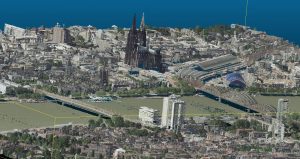Dear OSGeo+Python community
After hosting a successful GeoPython 2016 and 2017 – with participants from over 25 countries – we are currently looking for presentations and workshops for the GeoPython 2018 conference in Basel, Switzerland. The conference date is May 07 to 09, 2018.
Talks (May 8-9, 2018)
* Talks may be either 20 or 50 minutes, though for exceptional proposals other talk durations may be considered.
* Lightning talks will be 5 minutes and time will be strictly enforced. (Register at the conference for lightning talks)
Workshops (May 7, 2018)
* Workshops are 2 or 3 hours. The audience will bring their own laptop and will learn some more advanced technologies/modules/…
Submission deadline is January 31, 2018
Conference topics are:
* Python in General
* GIS / Mapping
* Geography / Geophysics / Geodesy / Geomatics
* Earth Sciences / Environmental Sciences
* Geovisualization
* Smart Cities
* Spatial Data / Geodata
* Geospatial Webservices
* Big Data
* Data Processing
* (Spatial) Databases
* Computer Vision
* Remote Sensing
* Image Processing
* Machine Learning
Kind regards,
The GeoPython 2018 Team


 Follow
Follow
 Follow
Follow